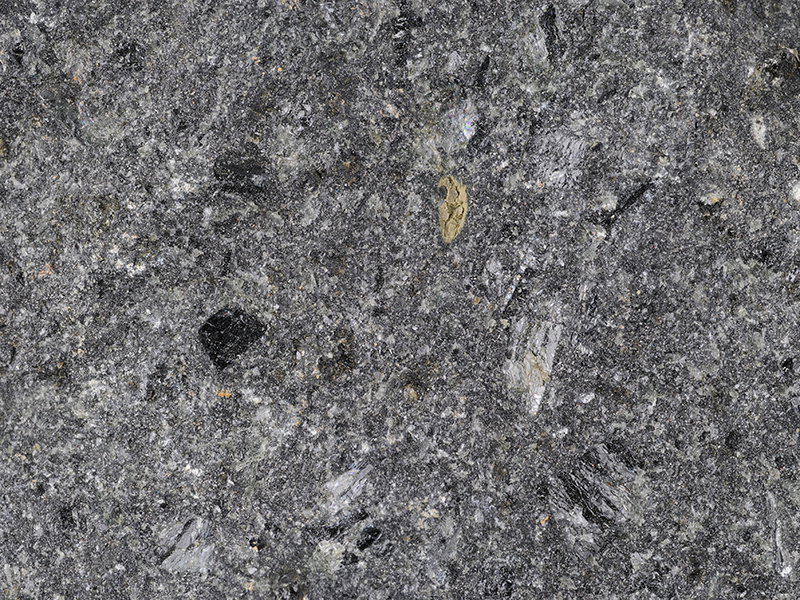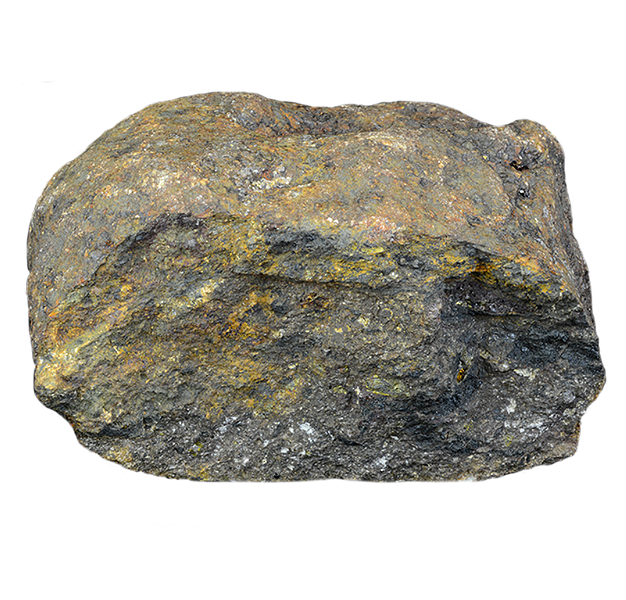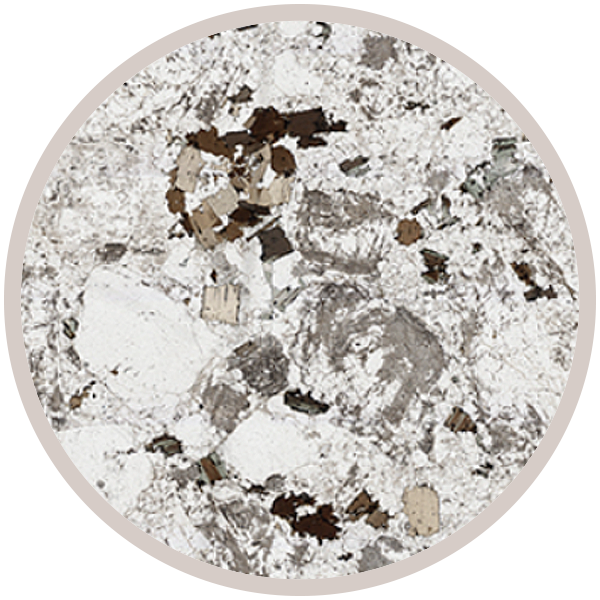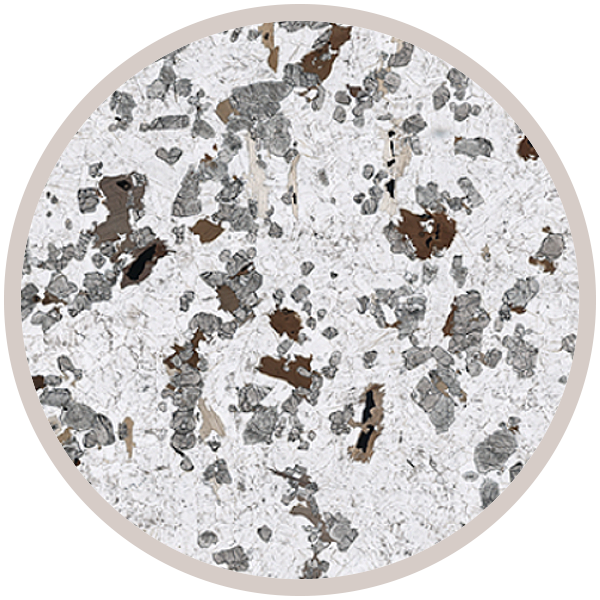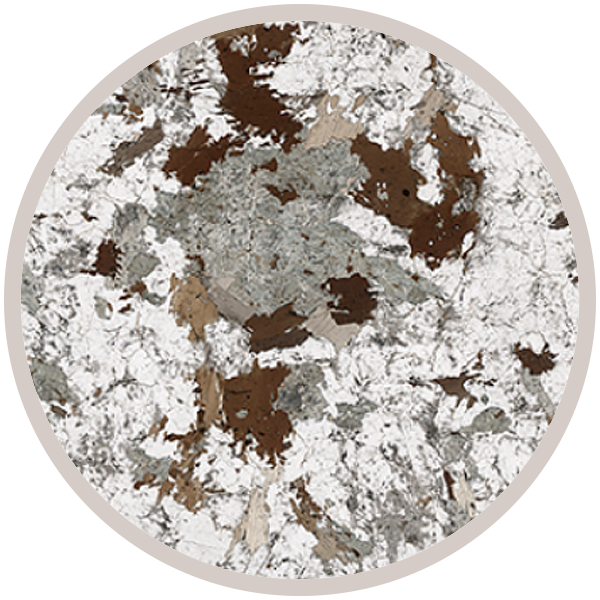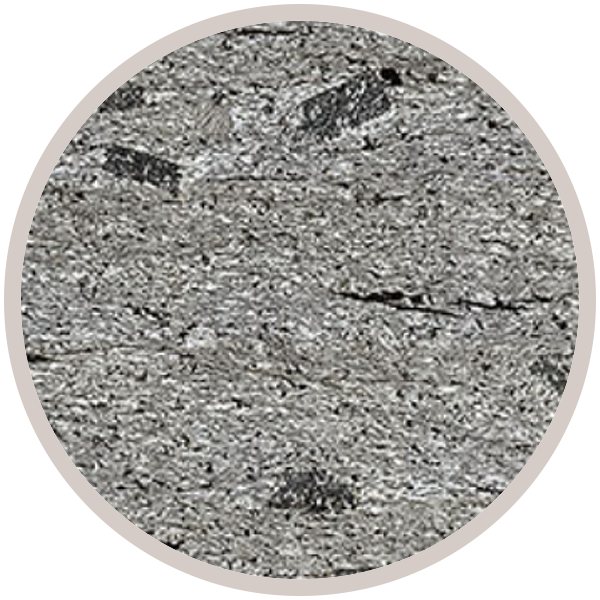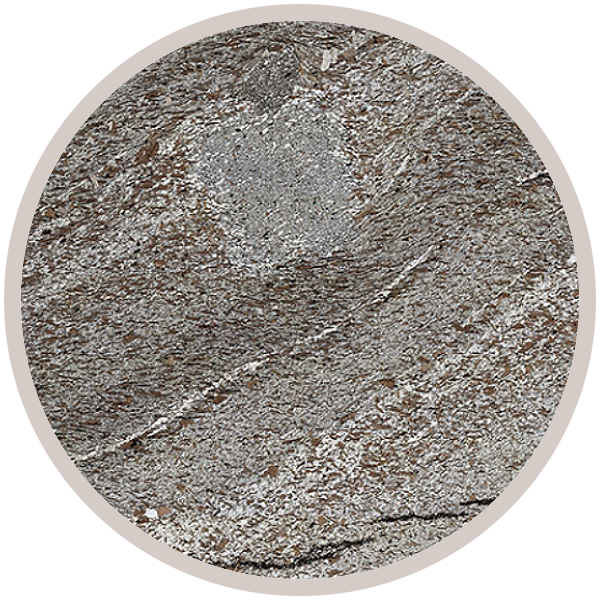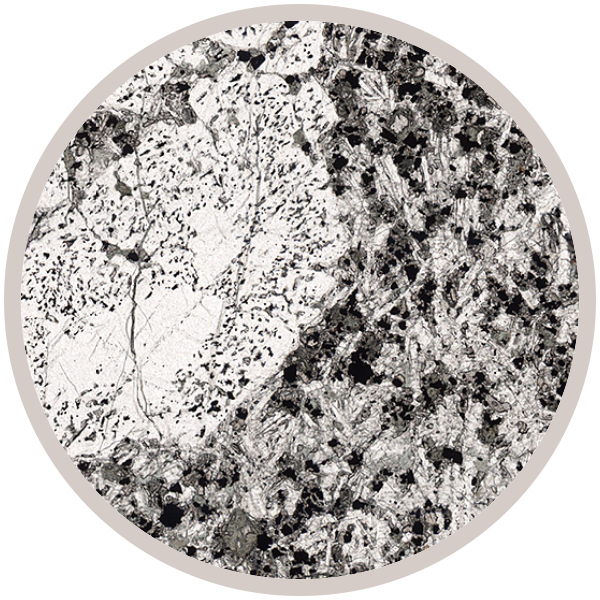
Fact sheet
Carboniferous mugearite, Mellerstain Hill quarry, Kelso Traps, Scotland
See also
http://www.virtualmicroscope.org/content/mugearite
and
http://www.open.ac.uk/earth-research/tindle/AGT/AGT_Home_2010/RockMonth-2011-02-a.html
It's the same sample
This collection consists of the rocks and thin sections used in the Open University modules.
The first set of samples are from the level 3 module Understanding the Continents. The theme of the module is crustal evolution in contrasting environments. It covers plate-tectonic processes including extensional regimes, subduction zone processes, and collisional processes such as the formation of the Himalaya. The module is intended for those with an understanding of the essentials of igneous and metamorphic rock-formation processes, plate-tectonic theory and structural processes.
